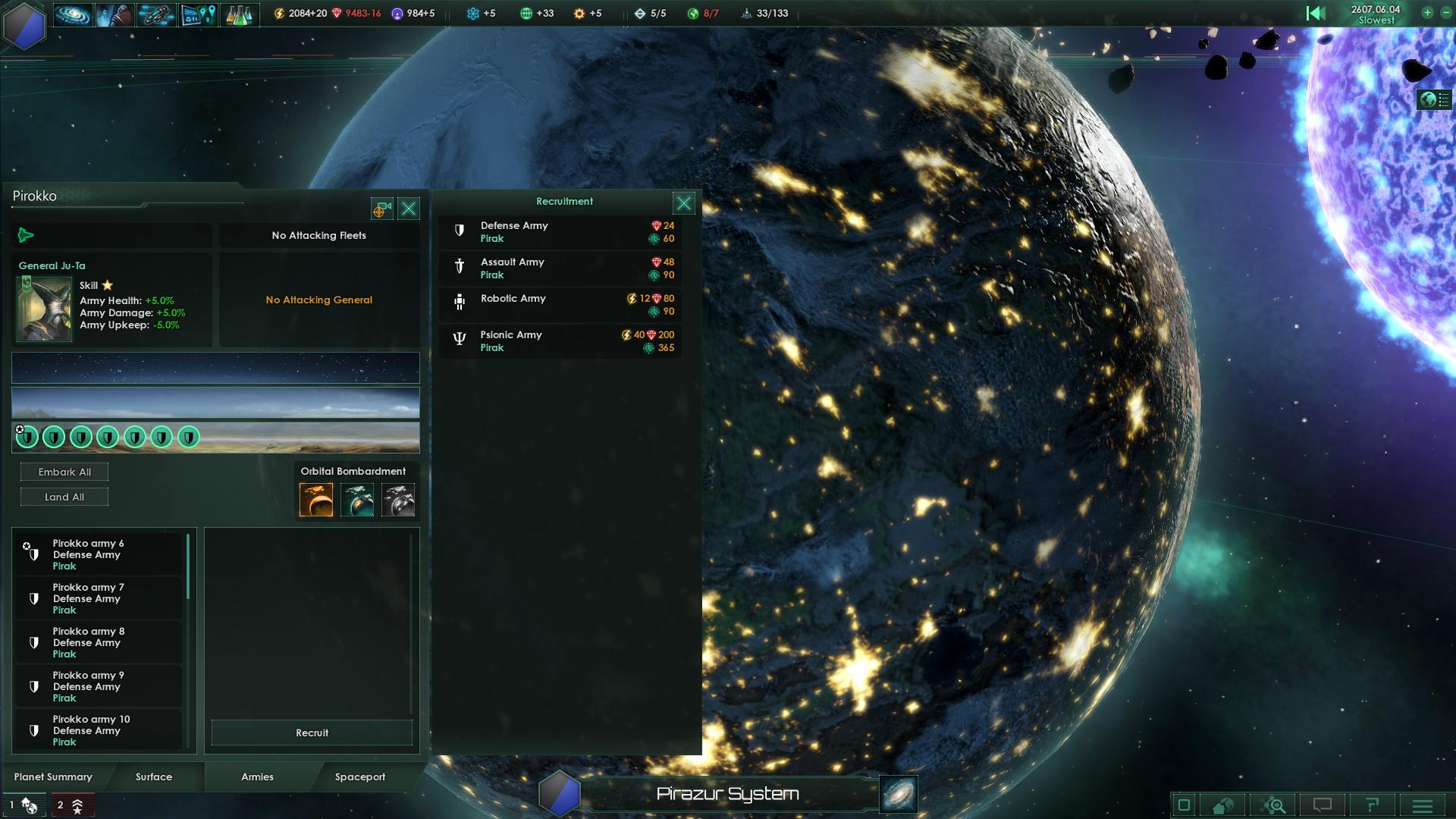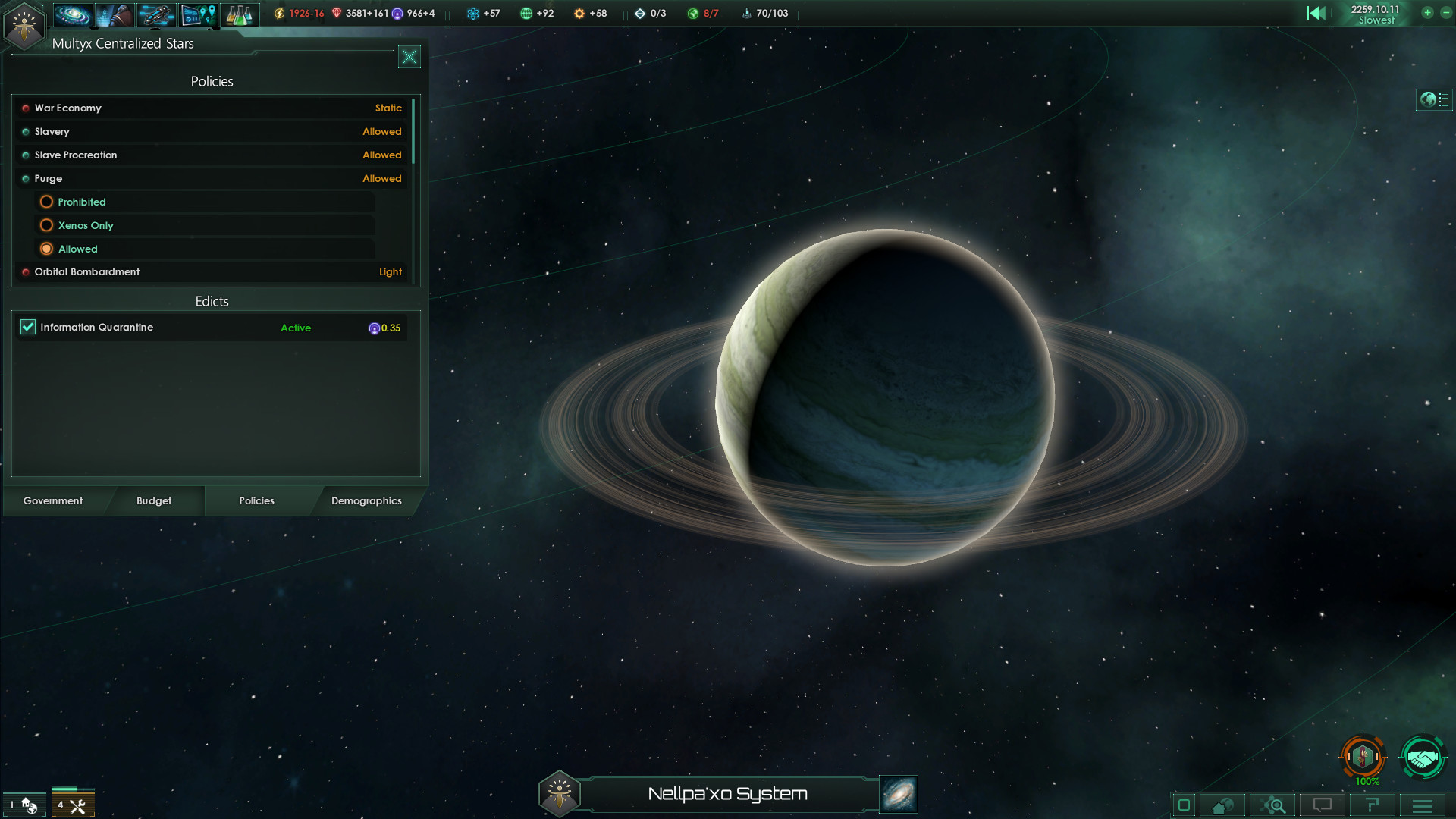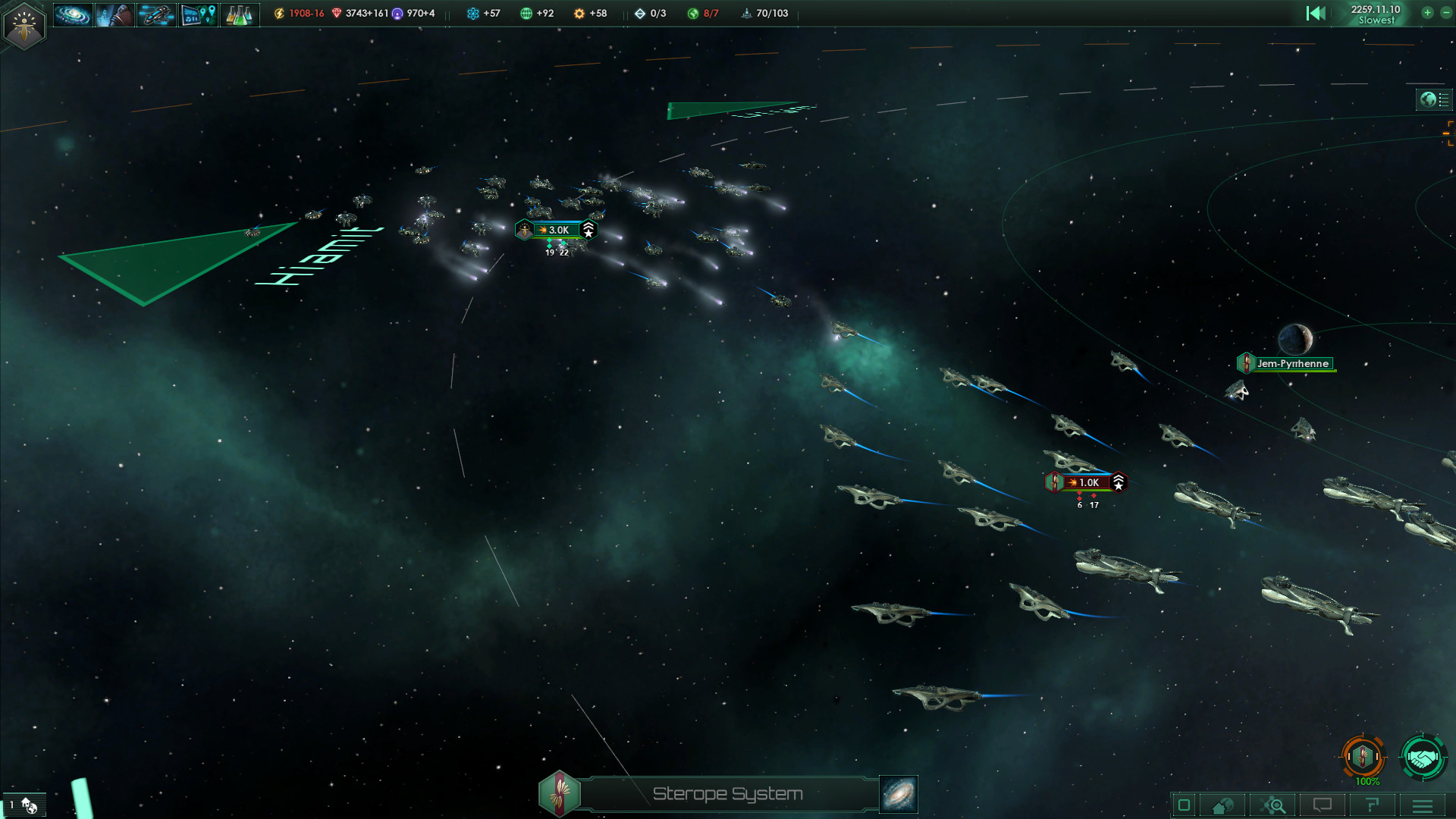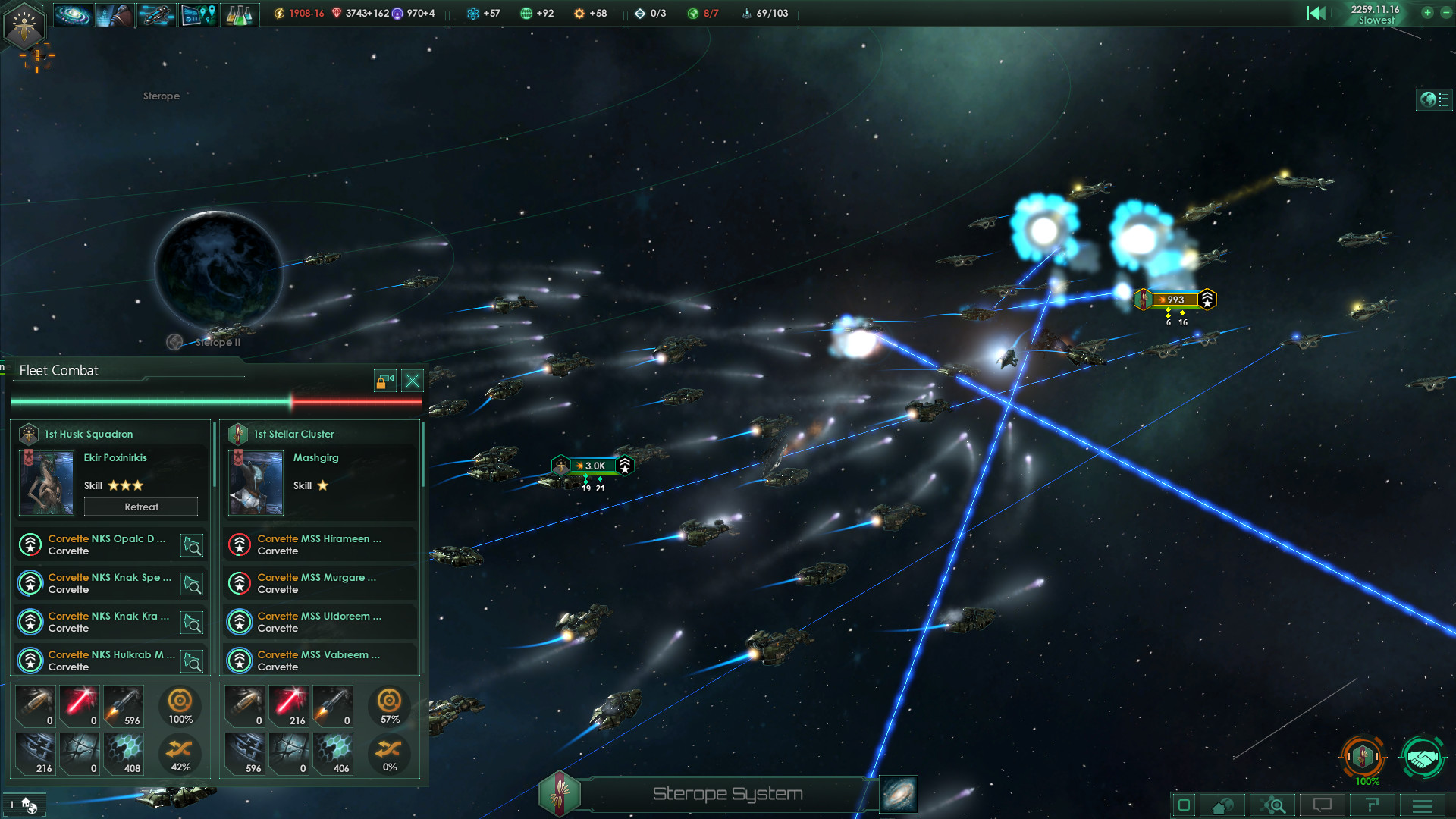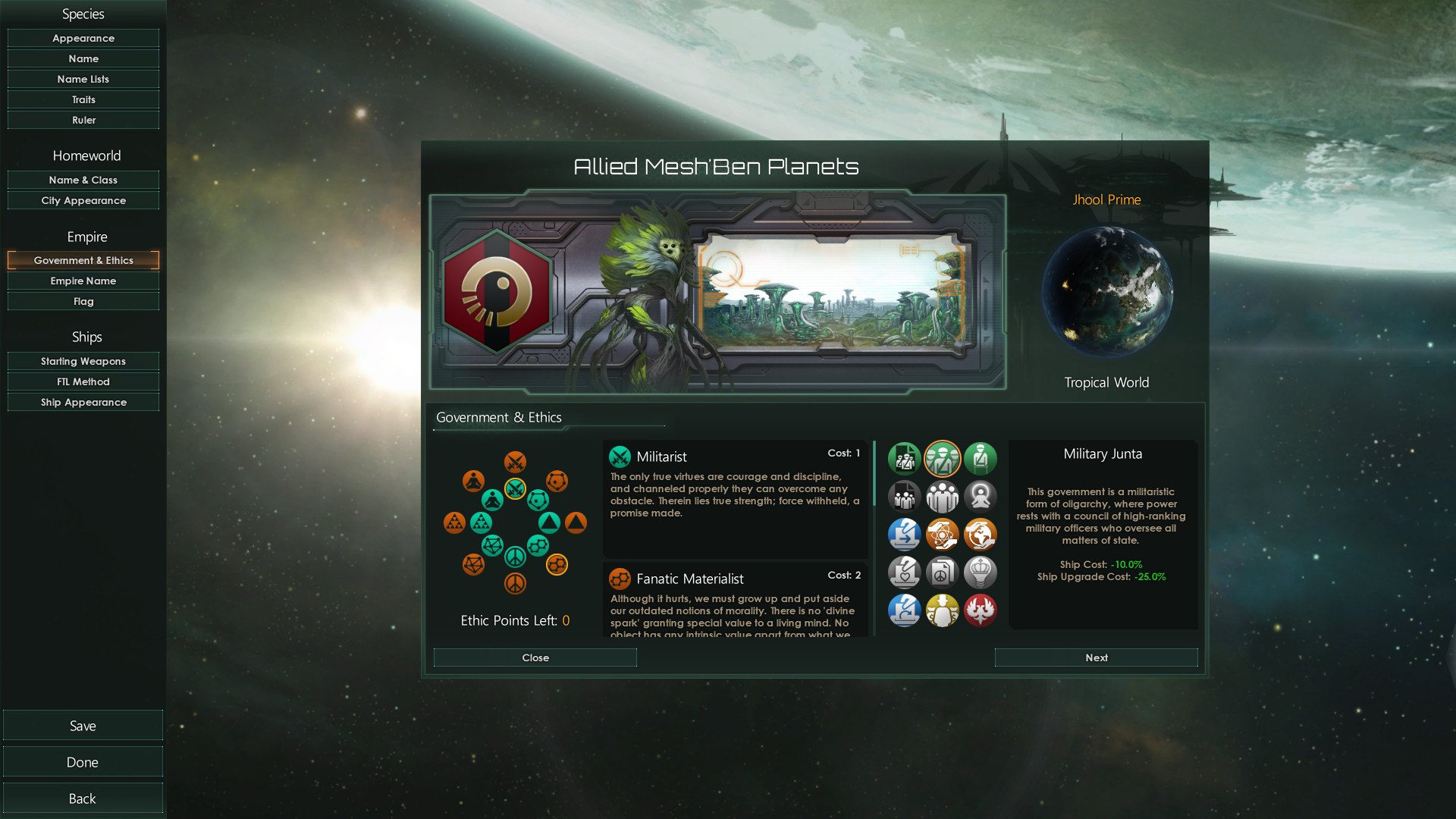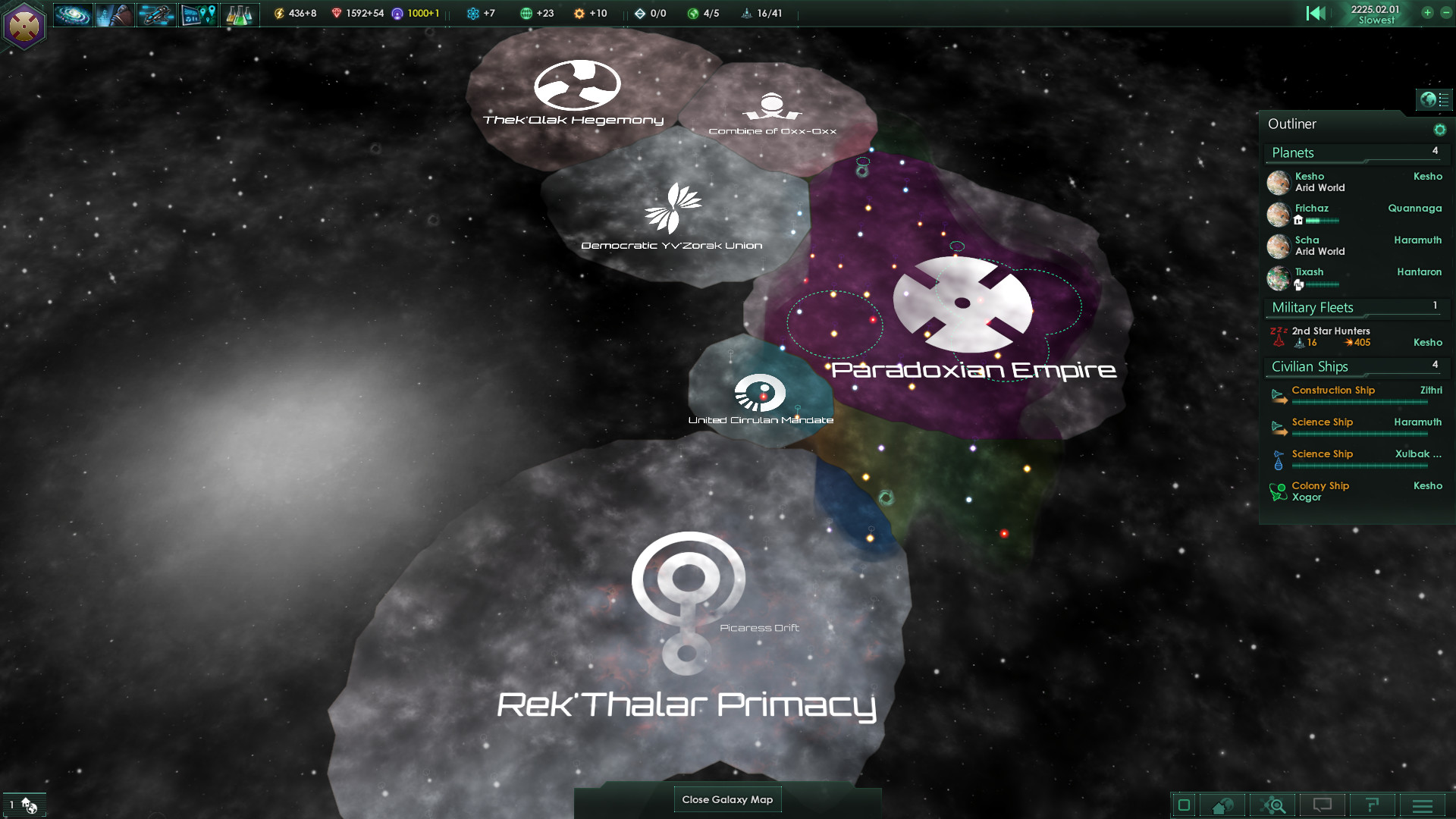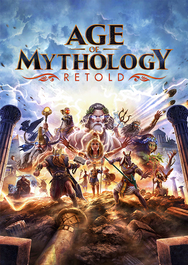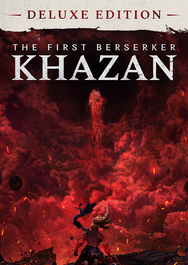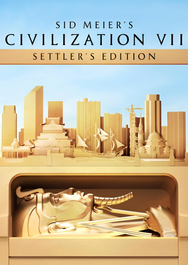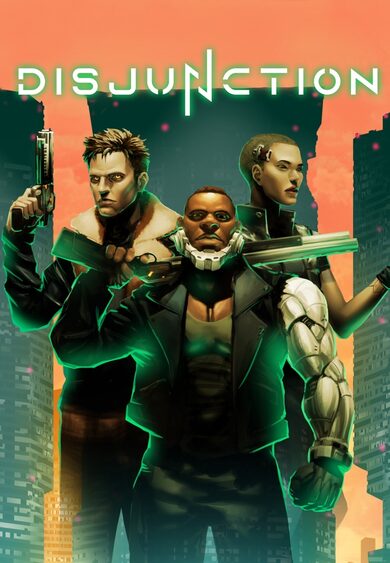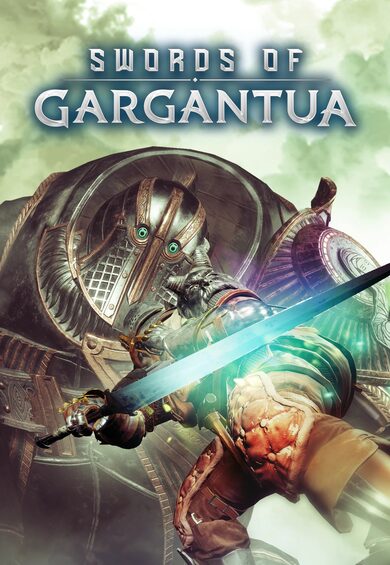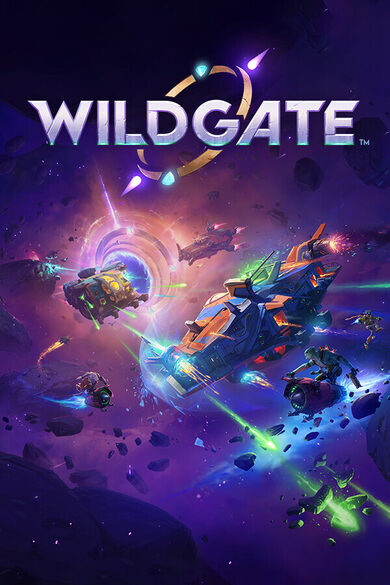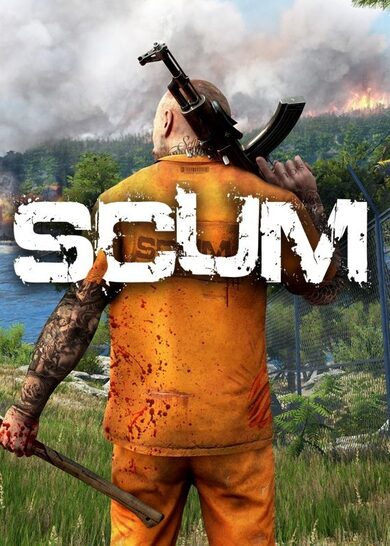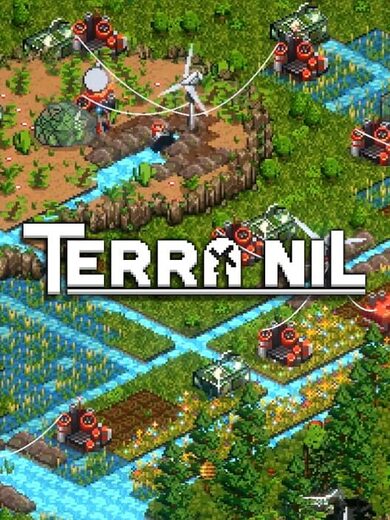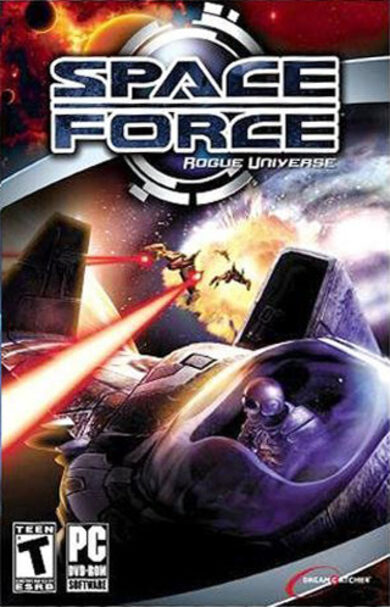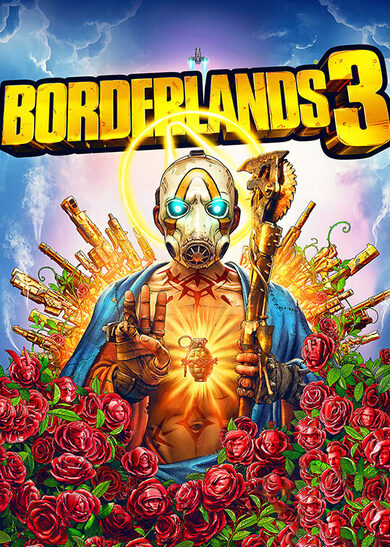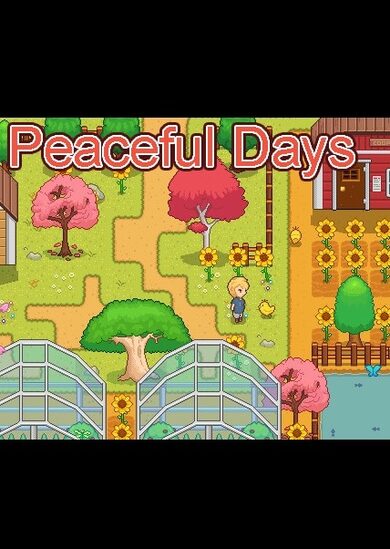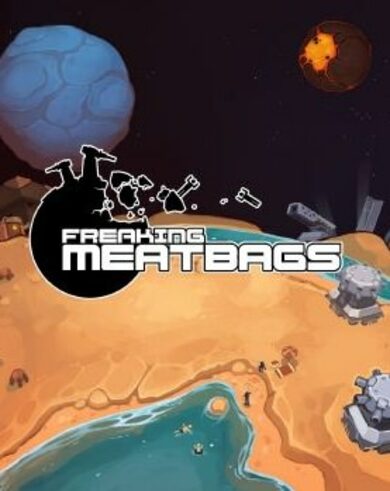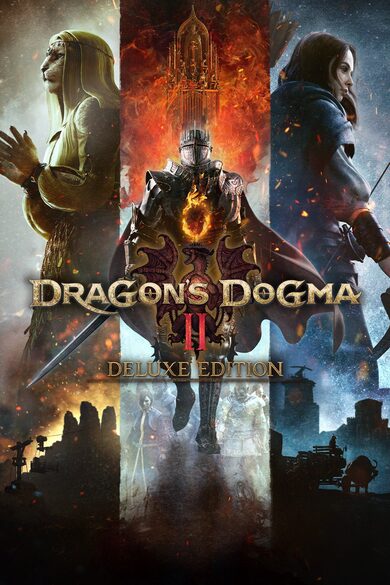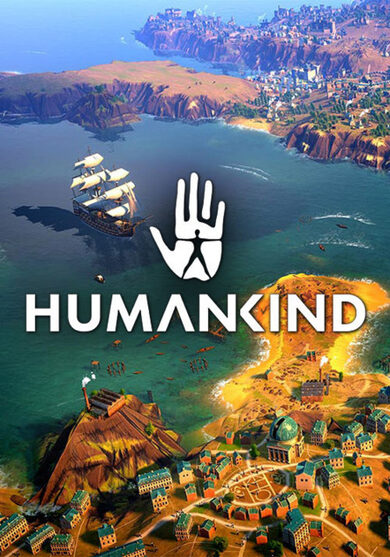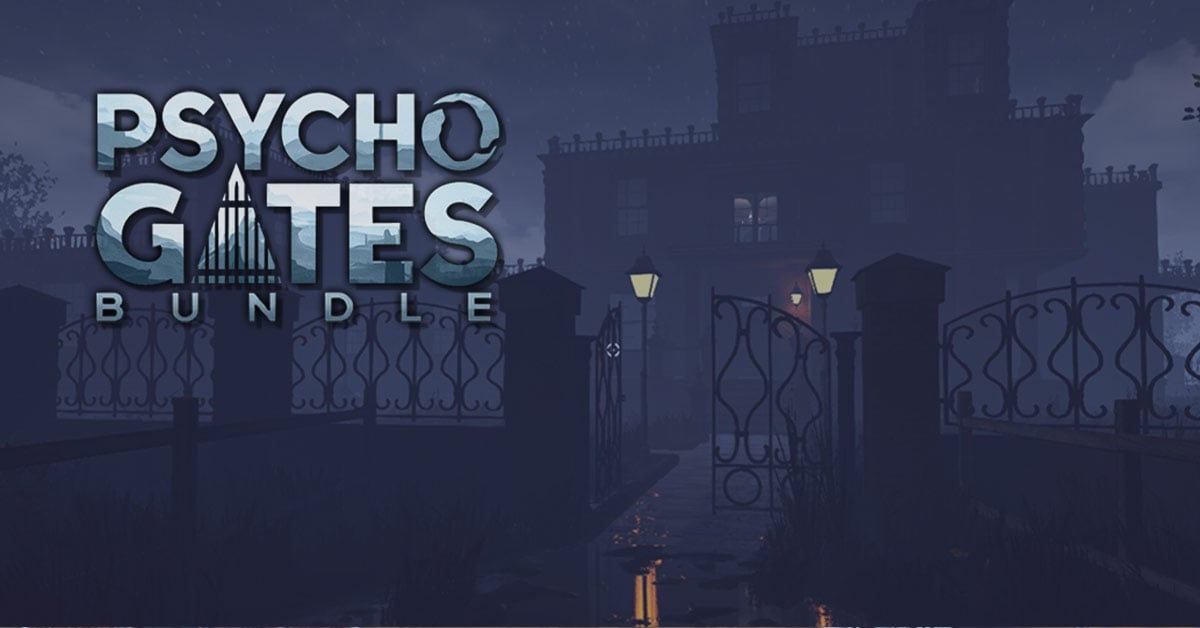Featuring deep strategic gameplay, a rich and enormously diverse selection of alien races and emergent storytelling, Stellaris has engaging challenging gameplay that rewards interstellar exploration as you traverse, discover, interact and learn more about the multitude of species you will encounter during your travels.
Etch your name across the cosmos by forging a galactic empire; colonizing remote planets and integrating alien civilizations. Will you expand through war alone or walk the path of diplomacy to achieve your goals?
Main Feature
- Deep & Varied Exploration.
- Enormous procedural galaxies, containing thousands of planets.
- Explore Anomalies with your heroic Scientist leaders.
- Infinitely varied races through customization and procedural generation.
- Advanced Diplomacy system worthy of a Grand Strategy Game.
- Ship Designer based on a vast array of technologies.
- Stunning space visuals.

Planet Stability
In the Le Guin update, Planetary Stability is the most important factor for determining the productivity and prosperity of your planets. Planetary Stability represents the overall political stability on a planet, and is influenced by a large number of factors such as Pop Happiness, Housing, Amenities, Crime and so on. Planetary Stability ranges from 0 to 100% and has a base level of 50%. A Planet that has at least 50% stability will gain bonuses to resource production and immigration pull, while a planet that drops below 50% stability will experience penalties to resource production and increased emigration push. Below 40% stability, unrest events such as hunger strikes, terrorist bombings and so on may start to occur, which can further lower stability down below the threshold for an armed revolt to start. We're still looking into which parts of the previous Unrest events we want to keep, replace, or convert to the new Crime system, so the exact way in which unrest events and armed revolts will work is not fully decided at this point, and we'll likely cover it more in detail in a future dev diary.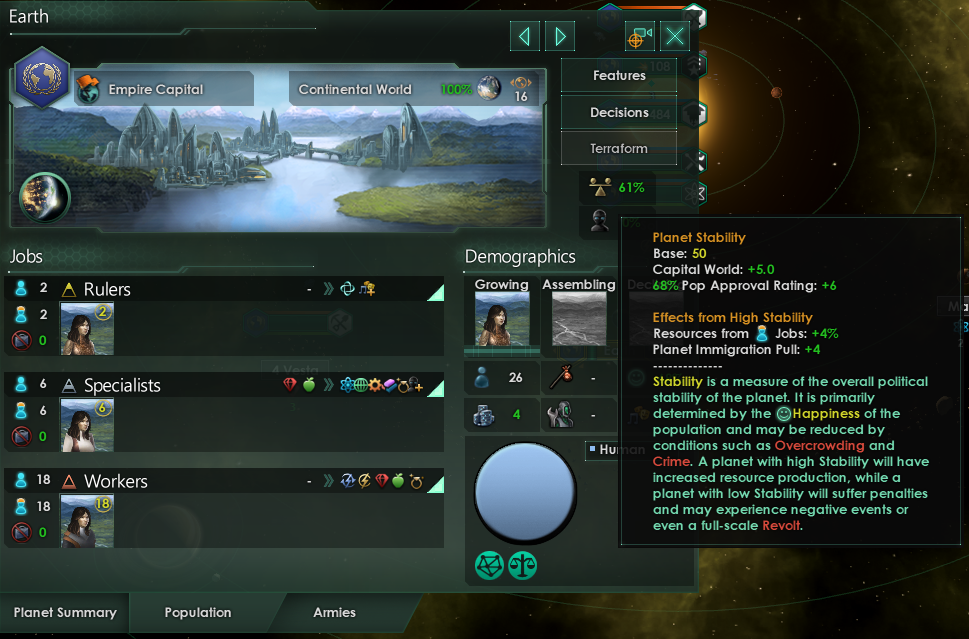
Pop Happiness and Approval Rating
Pop Happiness is a major factor in determining planet stability. Each Planet that contains at least one Pop with free will has a Pop Approval Rating value that is the average happiness of the Pops, modified by their Political Power. Each Pop has a Political Power value that depends on their stratum and living conditions - for example, a Ruler Pop living in a Stratified Economy will have an immense degree of Political Power, and their happiness may be more important than that of even a dozen Worker Pops. However, even Pops with no political power at all can still drag down your Approval Rating, so a planet with a vast mass of angry slaves will need some Rulers to keep them in line. On the individual Pop level, Happiness no longer affects productivity, so to ensure your planets are productive you now only need make sure your Stability level is high, and whether you achieve that stability with a happy populace or ruling with an iron fist is up to your ethics, policies and general playstyle preferences. Individual Pop Happiness is not entirely without effect though, as the happiness of a Pop determines how likely it is to adopt your governing ethics, and also affects how much Crime it generates (see below for further details).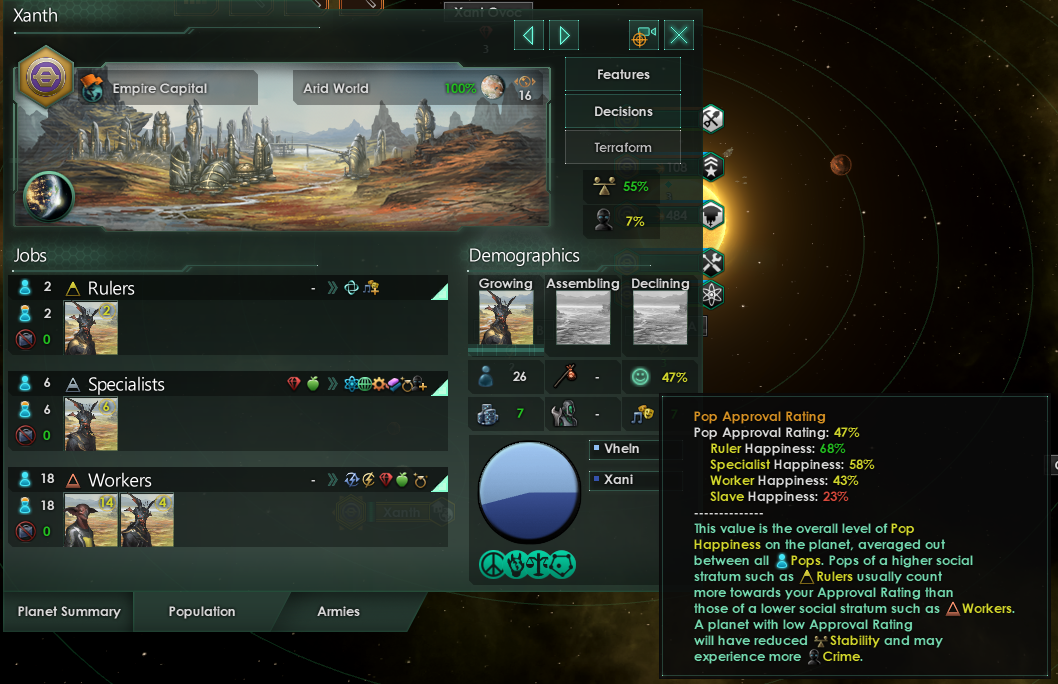
Amenities
As part of trying to consolidate systems relating to happiness we've added a new value called Planet Amenities. Amenities represents infrastructure, facilities and jobs dedicated to fulfilling the day-to-day needs of the population. In order to not suffer penalties, a planet needs at least as many Amenities as it has Infrastructure, and any Amenities above or below that number cause increased/decreased Pop Happiness, respectively. Capital Buildings and many Ruler jobs produce a base amount of Amenities and may be sufficient for a sparsely populated mining world, but urbanized planets will likely need to dedicate part of their infrastructure to Amenities-producing jobs such as Entertainers to keep the population happy. Many of the things that used to directly increase Happiness in the old Tile system (such as Domestic Servants or certain special buildings) now produce Amenities instead, and direct Happiness-buffing modifiers have been made rare, so keeping your entire population perfectly happy is now something that requires dedication and resources, rather than just a matter of throwing down a couple of buildings and calling it a day.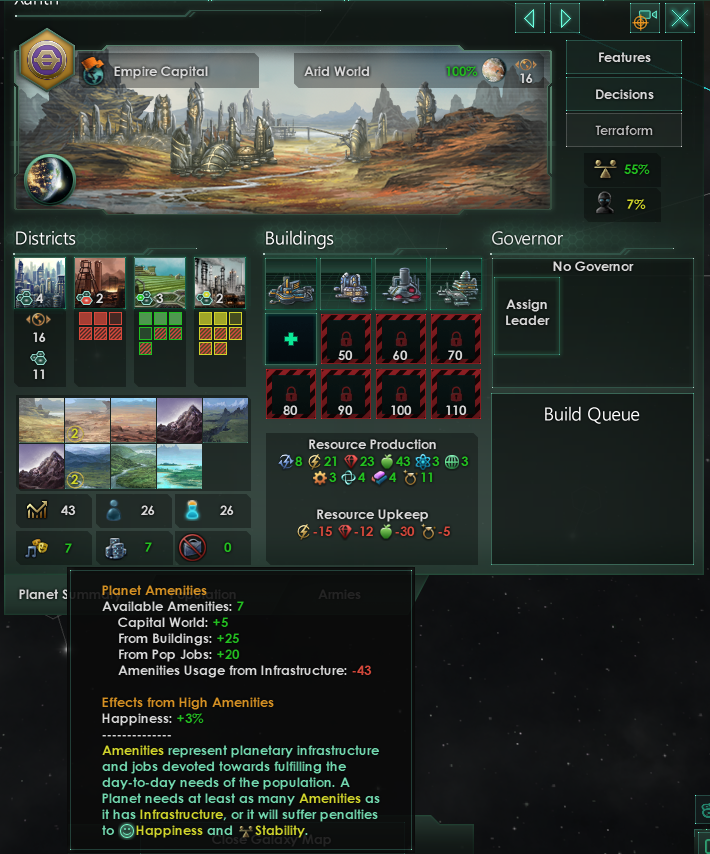
Crime
Something else that we wanted to achieve with the new system was to create the potential for social and political unrest without necessarily having it take the form of a direct penalty or revolt, especially on heavily populated worlds. Crime is a value generated by all virtually all Pops with free will, and can vary between 0 and 100% on a planet. Happy Pops produce less crime, while unhappy Pops produce more crime, but only Pops at a perfect 100% happiness produce no crime at all. Crime has no actual direct penalty, but instead may result in events such as smuggler rings or organized crime taking root on the planet. These events and conditions are generally detrimental, but may also open up certain benficial opportunities and decisions that would not be available on a planet with perfect law and order. Nonetheless, a very high level of Crime is generally something to be avoided, as crime can lower stability and also result in Pops leaving their ordinary jobs and moving into special Crime jobs that appear on the planet and which take resources away from your empire rather than producing them. To combat Crime, you can build buildings such as Precinct Districts that create crime-suppressing Enforcer jobs. In general, empires that rely on repression and inequality to keep their Pops in line will need to employ more Enforcers, but there will also be other ways to manage Crime, possibly including ways to integrate the criminal enterprises as a fixture in your society (the exact details on this is still very much something that's a work in progress).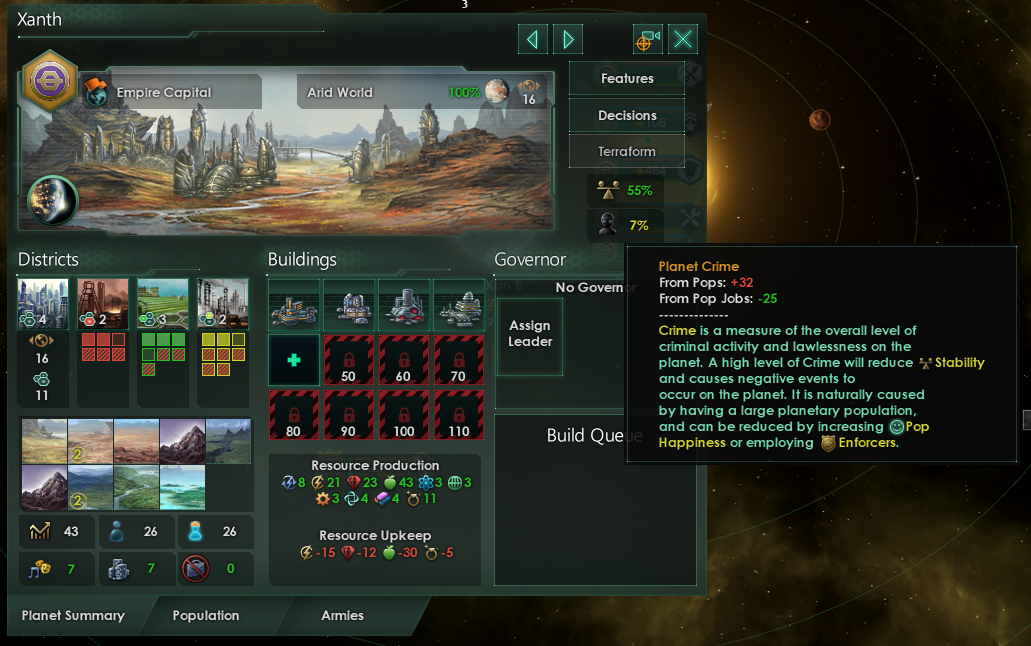
That's all for today! Next week we'll continue with the final part of the Planetary Rework dev diaries, on the topic of Machine Empires, Hive Minds, Habitats and other mechanics that are changing alongside the Planetary Rework.
Minimum Setup
- OS: Ubuntu 20.04 x64
- Processor: Intel iCore i3-530 or AMD FX-6350Memory: 4 GB RAM
- Memory: 4 GB RAM
- Graphics: Nvidia GeForce GTX 460 or AMD ATI Radeon HD 5870 (1GB VRAM). or AMD Radeon RX Vega 11 or Intel HD Graphics 4600Network: Broadband Internet connection
- Storage: 12 GB available space
Recommended Setup
- OS: Ubuntu 20.04 x64
- Processor: Intel iCore i5-3570K or AMD Ryzen 5 2400GMemory: 4 GB RAM
- Graphics: Nvidia GeForce GTX 560 Ti (1GB VRAM) or AMD Radeon R7 370 (2 GB VRAM)Network: Broadband Internet connection
- Storage: 12 GB available space
[ 6366 ]
[ 6538 ]
[ 3327 ]
[ 2497 ]
[ 1732 ]
[ 1040 ]
[ 32822 ]
[ 955 ]
[ 45581 ]

